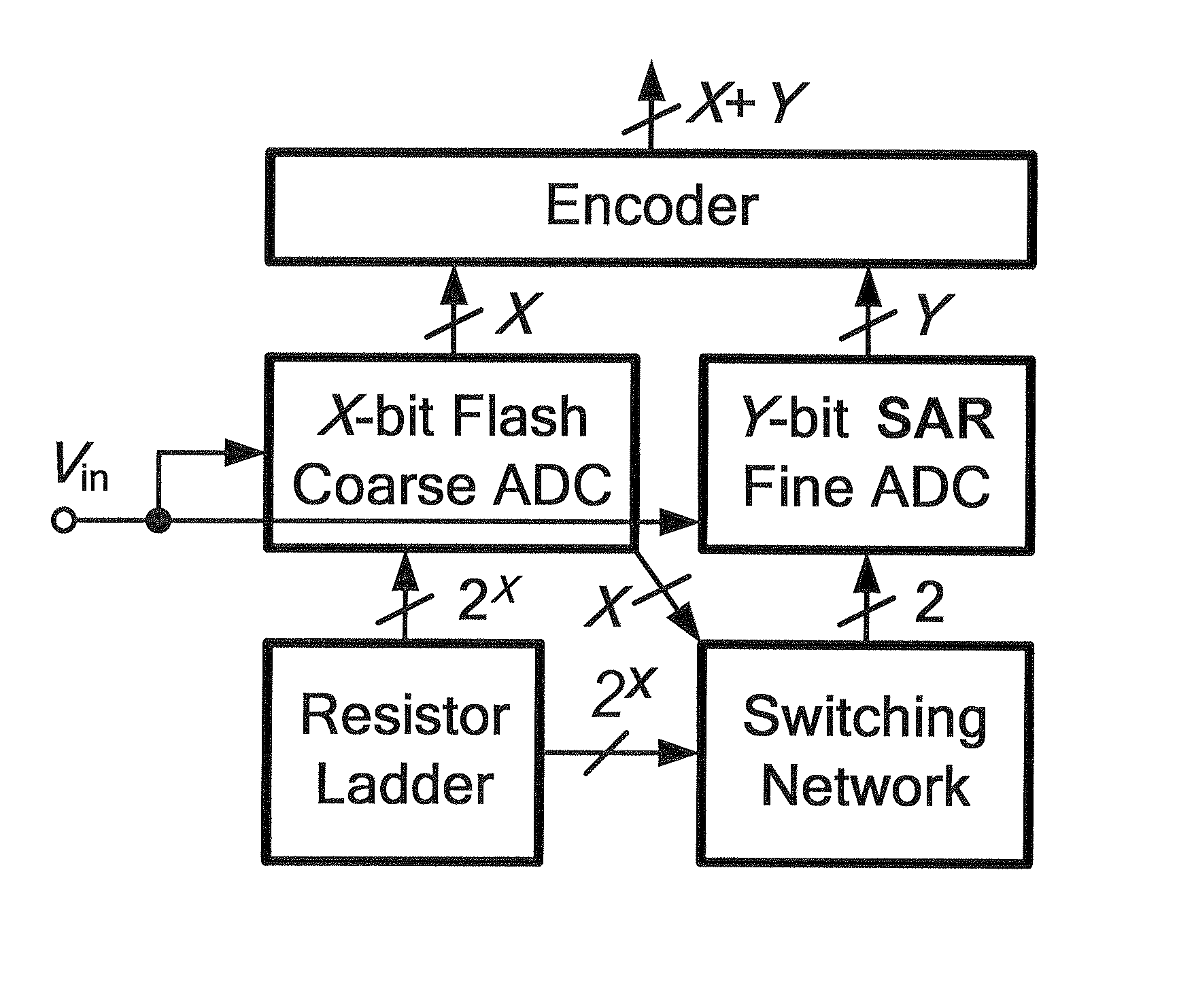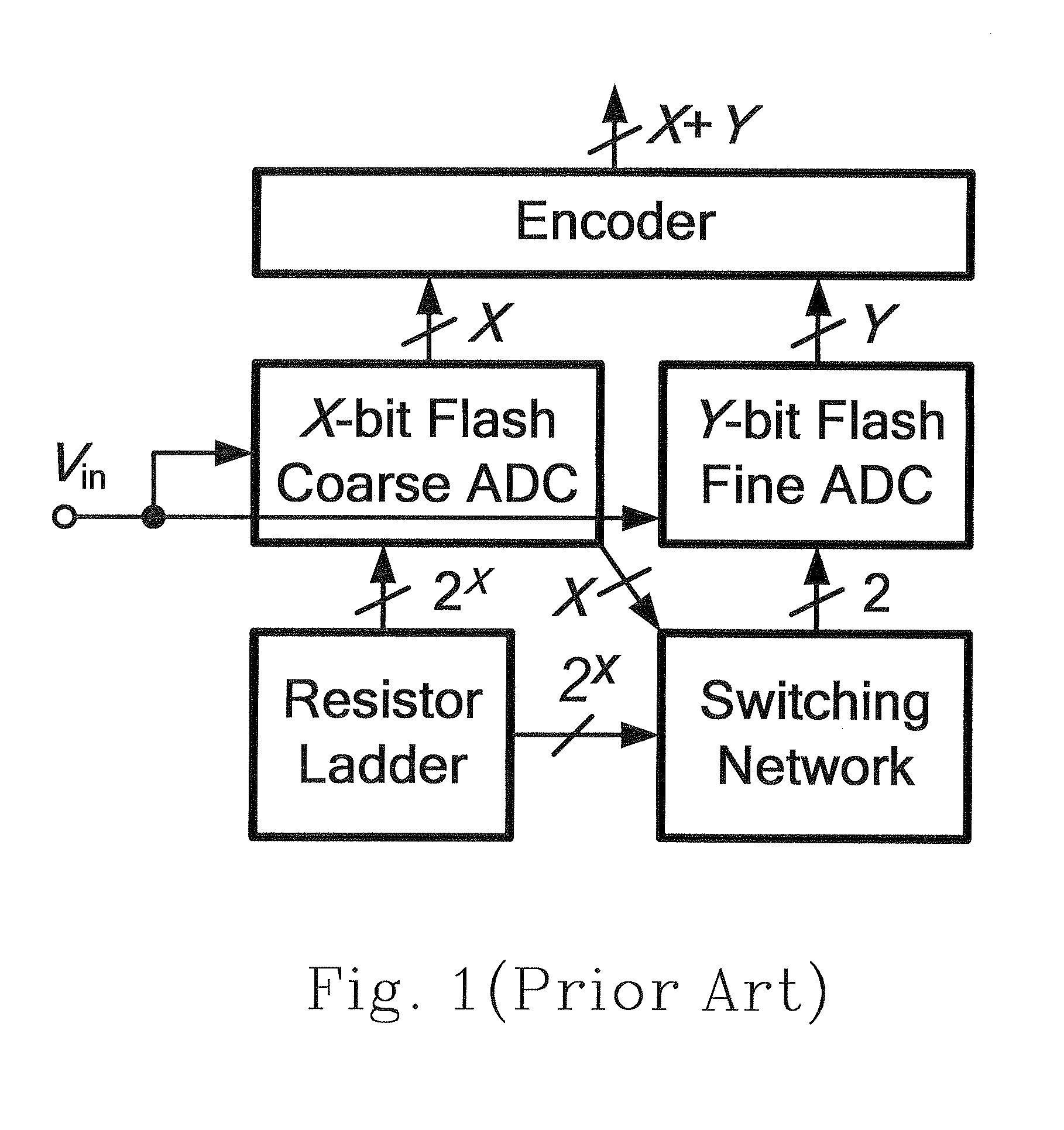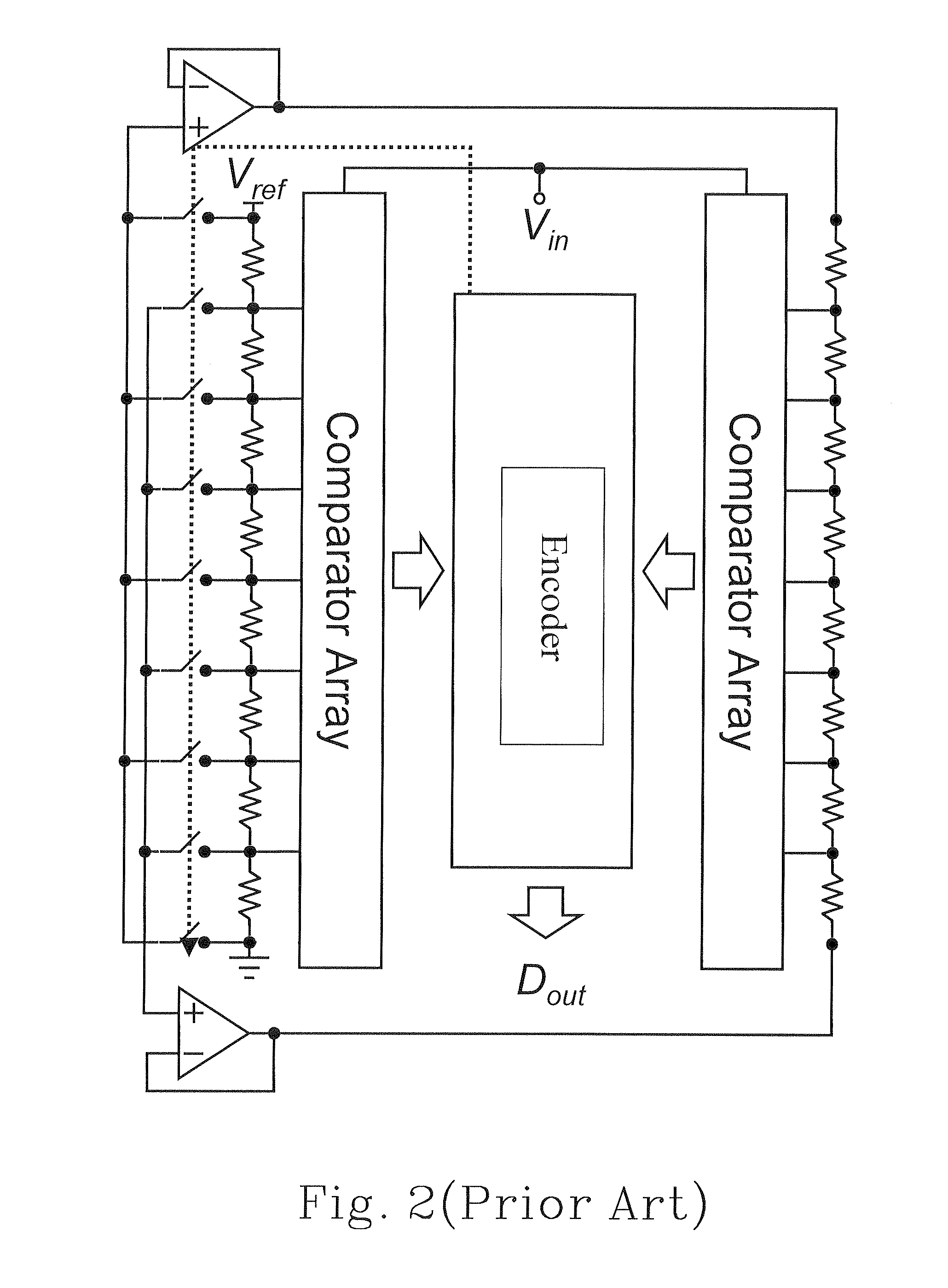Subrange analog-to-digital converter and method thereof
a subrange analog-to-digital converter and subrange technology, applied in the field of subrange analog-to-digital converters, can solve the problems of limited operation speed, high technical difficulty in designing high-speed and high-resolution subrange adcs, and the resistance value of the resistor ladder in the flash adc is not allowed to be too small, so as to improve the differential non-linearity (dnl) and the sampling speed of the subrange adc as
- Summary
- Abstract
- Description
- Claims
- Application Information
AI Technical Summary
Benefits of technology
Problems solved by technology
Method used
Image
Examples
embodiment 1
[0042]2. A converter further comprising a first and a second bootstrapped switches, an error correction circuit and a comparator electrically connected to the positive and the negative terminals, wherein the positive and the negative input terminals receive an input signal, the input signal is a differential signal, the first and the second bootstrapped switches are respectively connected between the positive input terminal and the comparator, and between the negative input terminal and the comparator for completely passing the differential signal through the positive and the negative input terminals, the SAR ADC includes a first digital control circuit, the flash ADC includes a second digital control circuit, and the error correction circuit electrically connects with the SAR ADC and the flash ADC and generates a digital code matched to the input signal.
[0043]3. A converter according to Embodiment 1 or 2, wherein the second capacitor array is configured to be one of the remaining ...
embodiment 6
[0050]7. A converter , wherein the 2(2(N+1)−2) capacitors are equivalent capacitors, in which each the first terminal of a first set of the 2(2(N+1)−2) capacitors is electrically connected to the positive input terminal, each the first terminal of the other set of the 2(2(N+1)−2) capacitors is electrically connected to the negative input terminal and each of the first set and the other set of the 2(2(N+1)−2) capacitors has (2(N+1)−2) capacitors.
[0051]8. A converter according to Embodiment 6 or 7 further comprising a successive approximation ADC (SAR ADC) including a second capacitor array having a plurality of bits and at least one of the capacitors with a first and a second terminals, wherein each the bit of the first and the second capacitor arrays electrically connects with at least one the capacitors, the first terminal electrically connects with one of the positive and negative input terminals, and the second terminal switchably connects with a first and a second reference volt...
embodiment 12
[0059]13. A method , wherein each of the two sets of divided voltages has (2(N+1)−2) voltages and each of the two sets of output signals has (2(N+1)−2) output signals.
[0060]14. A method according to Embodiment 12 or 13 further comprising a step of generating N digital codes respectively corresponding to the N bits according to the voltage value of each the capacitor representative of each the bit of the N groups after an adjustment in the determining step is finished.
[0061]15. A method according to anyone of the above-mentioned Embodiments, wherein the subrange ADC has M bits counted from a most significant bit (MSB) to a least significant bit (LSB), further comprising steps of:
[0062]providing a capacitor array having at least one capacitor with a first and a second terminals and configured to be one of the remaining (M−N) bits and the remaining (M−N−1) bits of the M bits, wherein each the bit electrically connects with the at least one capacitor, the first terminal receives the inp...
PUM
 Login to View More
Login to View More Abstract
Description
Claims
Application Information
 Login to View More
Login to View More - R&D
- Intellectual Property
- Life Sciences
- Materials
- Tech Scout
- Unparalleled Data Quality
- Higher Quality Content
- 60% Fewer Hallucinations
Browse by: Latest US Patents, China's latest patents, Technical Efficacy Thesaurus, Application Domain, Technology Topic, Popular Technical Reports.
© 2025 PatSnap. All rights reserved.Legal|Privacy policy|Modern Slavery Act Transparency Statement|Sitemap|About US| Contact US: help@patsnap.com



